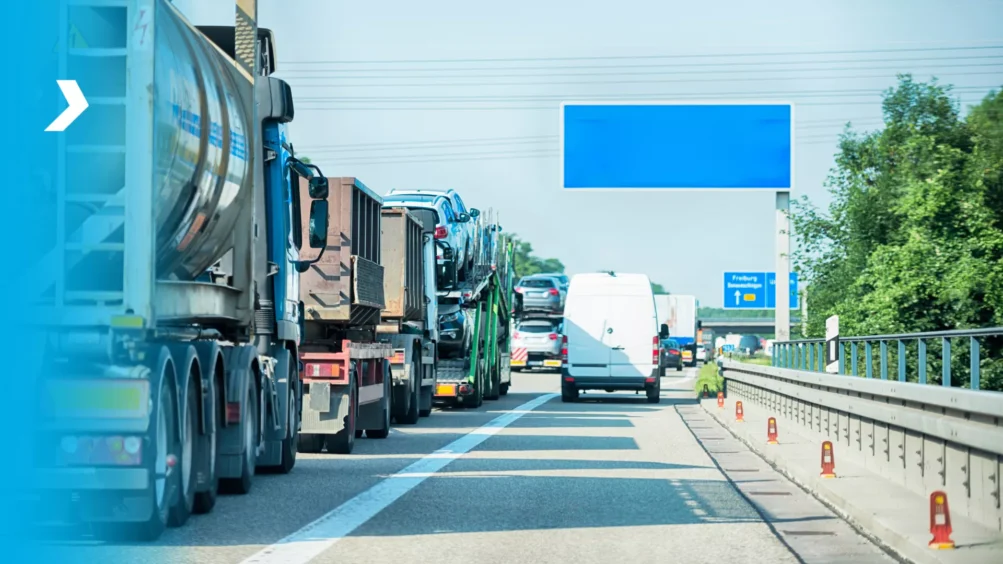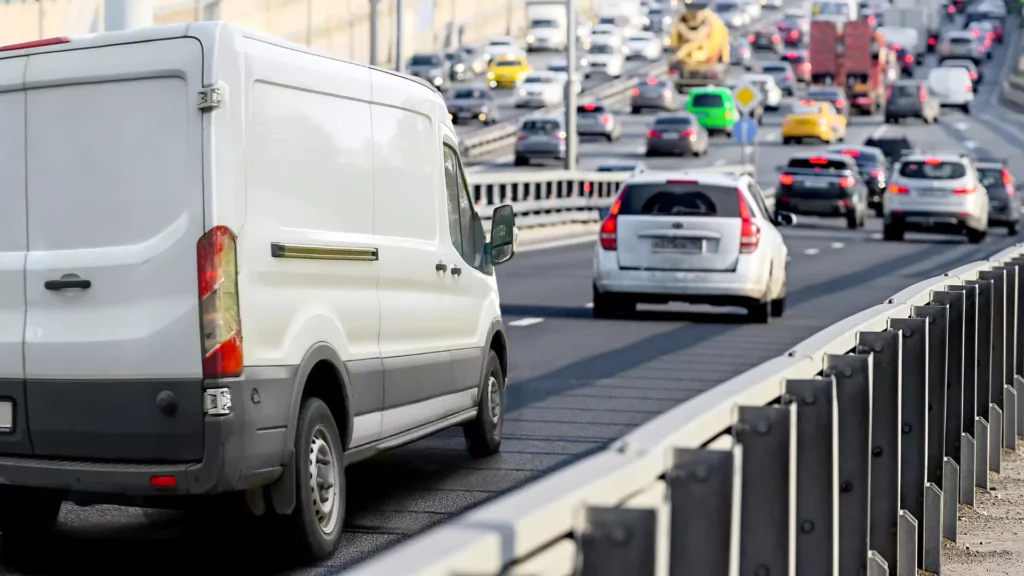
Efficient Freight Movement in Congested Areas: Small Trucks as a Smart Solution
Based on recent studies by the American Transportation Research Institute (ATRI), including “Top 100 Truck Bottlenecks – 2023” and “Cost of Congestion to the Trucking Industry,” traffic bottlenecks have emerged as a significant issue in recent years. In 2021, these bottlenecks cost the trucking industry over $96.4 billion. The impact goes beyond the industry’s financial statements, leading to cost overruns for clients due to delivery delays. Addressing this, Expedite All stands out in the logistics field with its innovative fleet of small trucks and vans. These vehicles are 15% faster in transit than larger trucks, offering a smart solution for quick and efficient freight transport in busy areas.
In this article, we highlight the significant and expensive effects of congestion on the transportation industry. We advocate for the utilization of right-sized trucks and the adoption of innovative technologies offered by Expedite All, the largest small truck network in the United States.
The High Cost of Congestion
ATRI’s congestion cost study uncovers the substantial impact of traffic congestion on the industry, with a shocking $94.6 billion financial effect. This is due to 1.27 billion hours of delays, equivalent to over 460,000 truck drivers being idle for a year. Additionally, about 6.793 billion gallons of fuel are wasted during these congestions, highlighting the economic and environmental costs of traffic jams. Certain states, notably California with over $9 billion, Texas ($7.26 billion), and Florida ($7.16 billion), face higher industry congestion costs compared to the Consumer Price Index, showing the increasing financial pressure on the industry.
This ongoing financial drain shows the need for a different approach. Innovative solutions are essential to decrease transit times and improve freight movement in congested areas, aiming for economic efficiency and a more sustainable trucking industry.
Understanding the Bottlenecks
The “Top 100 Truck Bottlenecks – 2023” report highlights that the average peak hour truck speed doesn’t surpass a slow 36.3 mph, a decrease of 6.1% from the previous year. The problem is widespread, with bottlenecks identified in 30 states, including Texas (13 bottlenecks), Georgia (9), and California (8), showing how common this issue is. These bottlenecks are more than just minor annoyances; they significantly challenge traditional large trucks trying to get through these busy areas. The effects include slower speeds and more delays, impacting the entire supply chain, from disrupting delivery times to raising operational costs and adding to the industry’s financial burden. Understanding these bottlenecks is vital in developing effective solutions for efficient freight movement in congested areas.
Large trucks, which are less maneuverable, struggle in congested urban environments and often have trouble reaching loading zones. This leads to a series of inefficiencies, such as delayed deliveries, increased fuel use, and higher operational costs. There’s a clear need for a more agile alternative that can smoothly move through congested areas and offer a more efficient way of transporting freight.
The Small Truck Advantage
Using smaller trucks and vans in congested areas offers multiple benefits, presenting a strategic response to the challenges of tight urban spaces. Their key advantage is increased maneuverability, allowing for easy navigation through narrow streets and sharp corners. This agility speeds up deliveries and allows access to areas where larger vehicles can’t go, ensuring timely arrival of goods. Additionally, the environmental advantage of smaller trucks aligns with the increasing focus on sustainable urban freight logistics. With lower emissions, these vehicles boost efficiency and play a vital role in reducing the ecological impact of transportation in busy city settings.
In terms of route optimization, small trucks are essential in reducing congestion-related strain. Their compact design allows them to move through traffic more effectively, lessening the impact of bottlenecks and reducing delays. This results in quicker delivery times, meeting the need for fast and reliable freight services. By skillfully navigating through congested areas, small trucks enhance the flow of goods and improve the economic efficiency of the transportation network. Ultimately, employing smaller trucks is a wise and practical approach to streamline freight movement in densely populated urban areas, keeping commerce moving smoothly amidst logistical hurdles.

Adapting to Urban Logistics
The rapid urbanization has made traffic congestion a widespread problem, particularly in last-mile delivery. Expedite All is a leader in this field with its fleet of small trucks specifically designed for city congestion. These trucks are expertly crafted to move through tight urban spaces, offering an edge in areas where large vehicles have difficulty. They excel in navigating narrow streets and busy intersections, able to reach locations that are challenging for bigger trucks. As cities expand, the adaptability of small trucks is key to ensuring efficient and prompt freight delivery within urban limits.
Expedite All is committed to agile and versatile solutions for the changing needs of urban areas. Small trucks are essential, fitting well with the trend toward local distribution centers and the focus on sustainable last-mile delivery. With the growth of e-commerce and on-demand services, the importance of small trucks in urban logistics becomes more evident. They offer a smart and effective solution to congestion challenges, ensuring that goods are delivered quickly and smoothly in busy city centers.
Strategic Solutions for a Congested Future
In the last two years, Expedite All has been a leader in addressing increasing congestion with its advanced strategies. Utilizing the right-size-trucking approach and advanced routing methods, the company is reshaping the movement of freight in busy areas, effectively avoiding traffic bottlenecks and jams. This continuous drive for adaptation and improvement highlights Expedite All’s commitment to remain a frontrunner in the ever-changing logistics sector. Amidst escalating urban challenges, the company adeptly manages congestion, playing a key role in shaping the future of efficient and smooth freight transportation and ensuring the role of small trucks as a sustainable option in urban logistics.
Conclusion
Small trucks have become a pivotal element in addressing congestion issues in the trucking industry. Expedite All’s use of these right-sized vehicles showcases our focus on effective and adaptable solutions. As urban areas grow and change, small trucks become increasingly essential for navigating traffic bottlenecks in urban settings. Expedite All is at the forefront of tackling these obstacles, reinforcing its status as a progressive logistics provider. By advocating for small trucks, the company not only overcomes current congestion challenges but also lays the groundwork for a more efficient and sustainable future in freight movement.
You May Be Interested In
Can LTL Mode be Used for Small, High-Value Cargo?
Before the invention of STL(small truckload) services, shippers were on the horns of a dilemma, choosing between FTL(full truckload) and LTL(less than truckload) when shipping small, high-value, and often time-sensitive cargo. Both options can do the trick, but neither is the best. Thus, FTL offers exclusive use of the truck and careful handling, yet it […]
How Do I Collect My Downtime Losses After an Accident that Wasn’t My Fault?
Knowledge of what to do before, during, and after an accident is key. Successful collection of lost profits involves a combination of preventive measures, proper documentation, and effective follow-up. Consider these ten steps…